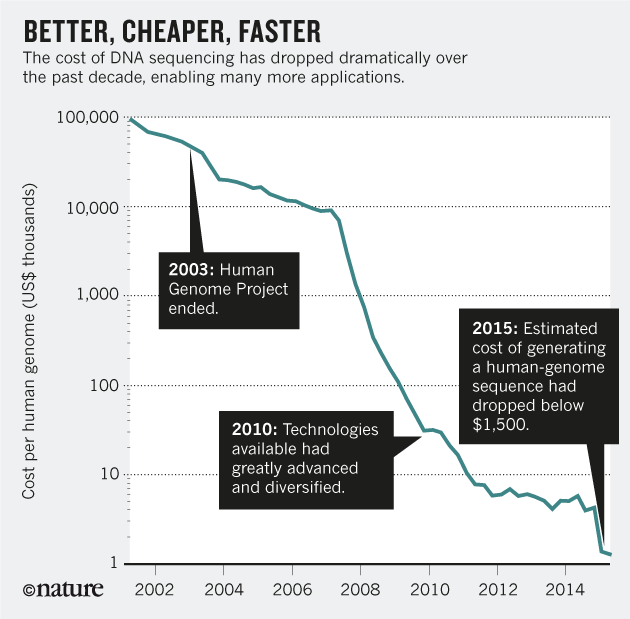Where does DNA sequencing goes from here?. Nowadays, this is an appropriate question to pose. The answer appears in an article in an interesting article in Nature.
Now, geneticists would like to have DNA sequences for everyone on Earth, and from every cell in every tissue at every developmental stage (including epigenetic modifications), in health and in disease. They would also like to get comprehensive gene-expression patterns by sequencing the complementary DNA copies of messenger RNA molecules.
In a mere 40 years, the central goal of putting molecular data about cells to practical use has changed from an informational challenge to a meta-informational one. Take clinical applications of genome-sequence data. It may soon be possible to use DNA sequencing routinely to analyse body fluids obtained for any clinical purpose. But only a vast amount of well-organized data about the multi-year medical histories of millions of people will provide the meta-information needed to establish when to ignore such data and when to act on them.


